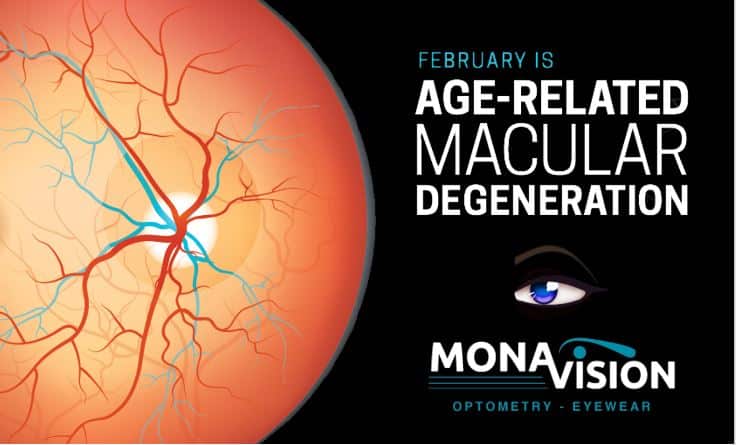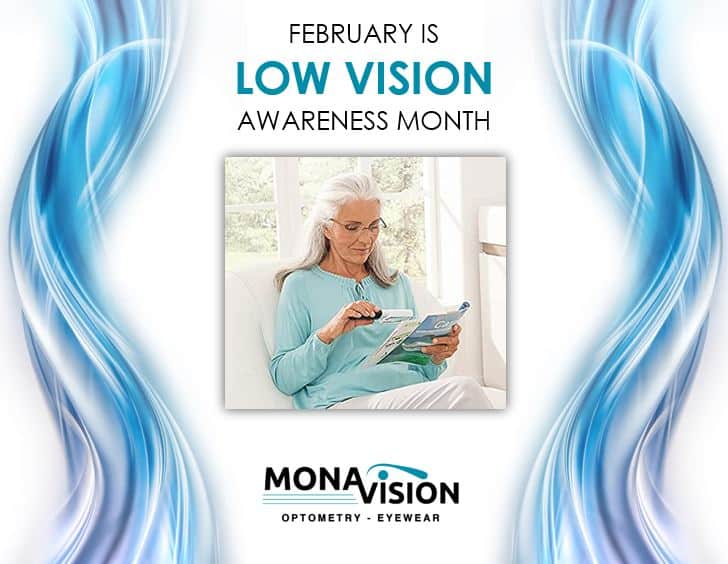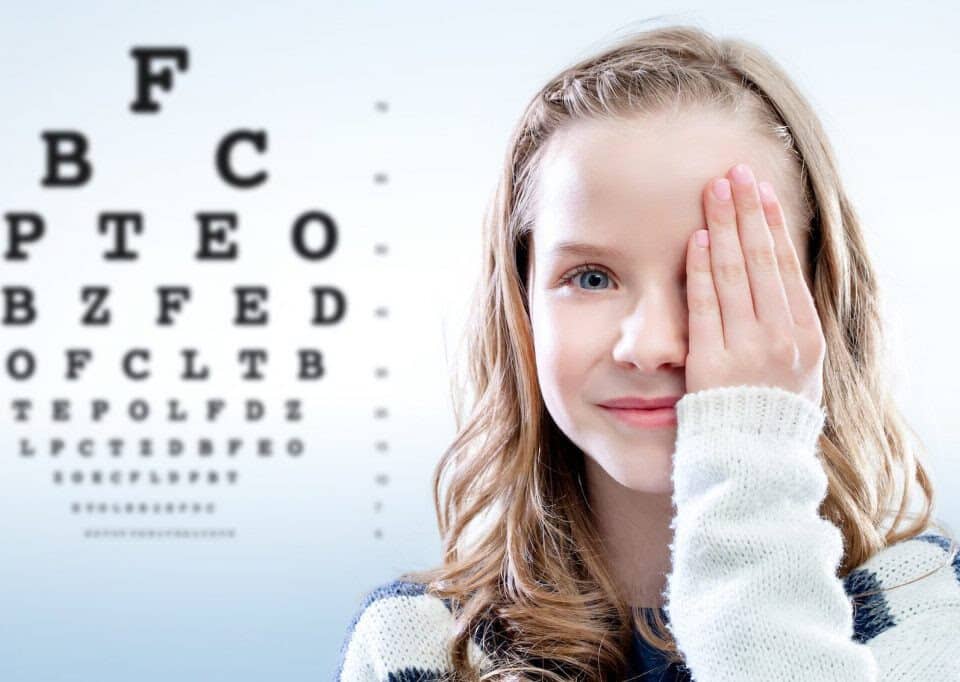
February is Age-related Macular Degeneration (AMD) month
February 2, 2023February is also a Low Vision Awareness Month, and there is no better time to protect one of your most important senses – your eyesight. Learning about the causes and risk factors related to low vision and scheduling a screening for yourself or a loved one is the key to protecting your sight as you age. If you are proactive about your health and well care, then learning more about low vision is an essential component of good health and wellness.
An estimated 2 million Canadians are living with vision loss and blindness and due to ageing and other factors, that number is in the process of doubling over the next 25 years.
The impact of vision loss is far-reaching. It affects work, income, self-esteem, dignity, family relationships, the ability to drive, leisure activities, community involvement and the activities of daily living. People who lose their sight may not enjoy the same rights and benefits that other Canadians enjoy, and they may experience social isolation and stigma. And while vision loss itself may not be fatal, it can precipitate other serious health impacts, such as clinical depression, and for seniors, falls and early admission to nursing homes.
Astonishingly, about 75 per cent of vision loss is actually preventable or treatable.
What is Low Vision?
Low vision is a term commonly used to mean partial sight, or sight that isn’t fully correctable with glasses, contact lenses, surgery, or medications. This condition is beyond the typical loss of vision that occurs with aging, and in fact, it can impact people of all ages.
When your eyesight is impaired to the degree that you struggle with daily tasks like reading or cooking – or that you have difficulty recognizing faces, you may have a medical condition referred to as low vision. Someone with low vision can’t simply put on a pair of glasses or contacts and see well; this condition is beyond the typical loss of vision that occurs with aging.
Individuals experiencing low vision can struggle with maintaining independence; hobbies, reading and even socializing may become challenging as vision loss progresses.
Since it is unusual to be able to restore vision once it is lost, screenings can help preserve the vision you have and help you access adaptive lenses and devices if you need them. While there is not a cure for low vision, your specialist can help you adapt and if needed, create a vision rehabilitation program designed to meet your specific needs.
What Conditions Cause Low Vision?
Low vision can be caused by several factors, and while age plays a role, it is not the only risk factor involved. Some common causes of low vision in seniors and adults of all ages include macular degeneration, glaucoma, cataracts or eye injury. Diabetes can also lead to extreme vision problems and result in low vision. Learning more about the conditions related to low vision can help you take proactive steps to protect your health and eyesight.
Please call our office to book an Eye Health and Low Vision Evaluation with our optometrist.
Tel: 250-766-0555



